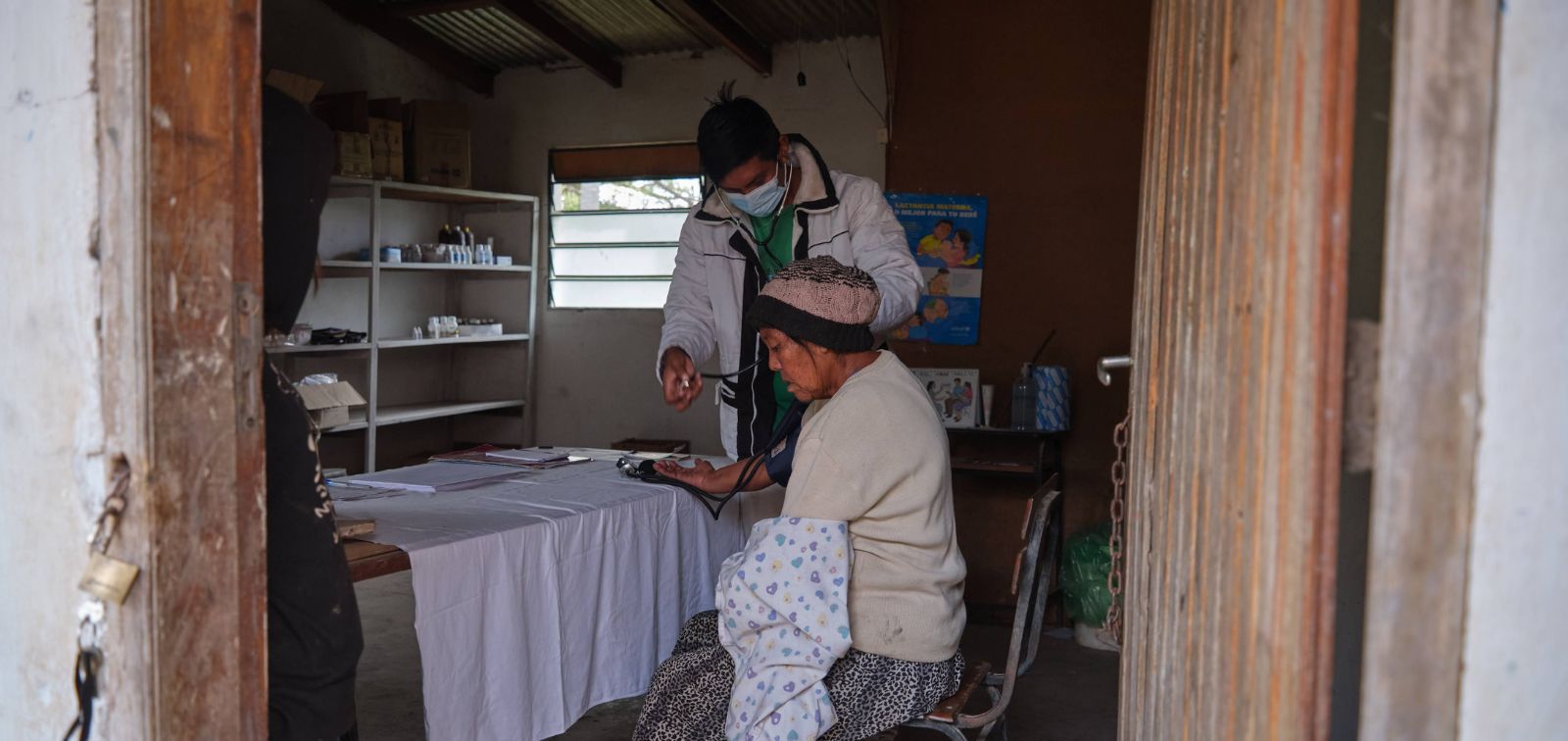CLIMSOCTRYPBOL
Insight on climate and social participatory research for integral management of vectorborne zoonosis caused by Trypanosoma cruzi and Leishmania spp. in the Bolivian Gran Chaco.

- Duration
- 08/05/2023 - 07/05/2026
- Coordinator
- Xavier Rodó
- Funded by
- Ayuda PCI2023-143449
The project is part of a multidisciplinary EU-LAC project for the study of the transmision risk of Zoonotic American Tripanosomiasis (Chagas disease) and Leishmaniasis in the Gran Chaco of Bolivia. The distribution and temporality of these transmisible diseases is linked to climate change, and also to the behaviour and social nature of their human hosts, domestic reservoirs and vector populations. Both Chagas disease and leishmaniasis are considered to be in an emergency and/or re-emergence situation in various parts of the world.
In the Bolivian Chaco region, Chagas disease is highly endemic while leishmaniasis outbreaks have been very recently described, including visceral leishmaniasis cases. In close coordination with social actors, local authorities and research centres, the project will deploy the team experience in community engagement and co-creation in order to design, implement and evaluate a strategy to meet community needs related with prevention, diagnosis, treatment and follow-up of leishmaniasis and Chagas disease.
A range of complimentary modelling techniques will investigate their climatic drivers of transmission in the area, considering vector ecology and human disease outcomes. For that, we will prospectively assess the presence of Chagas and leishmaniasis vectors in human dwellings and peridomestic environments, and the seroprevalence in domestic reservoirs (dogs). Triatomine samples will be used for a detailed population genomic analysis in order to evaluate and identify management-units of Triatoma infestans, main vector of Chagas disease in Bolivia, and sand flies samples will be analysed for the first time to obtain data on their genetic population. The populations of T. cruzi and the Leishmania species/s in the area will be characterized. Specifically, the team will collaborate in providing data for climatic studies, in the preparation of material and surveys for social studies and in the epidemiological study (canine reservoir and vectors), emphasizing in the study of cross-reactions between T. cruzi and Leishmania, and their genetic profiling (study of the populations of T. cruzi and Leishmania spp.).
Total Funding
157.300 €
Our Team
Coordinator
-
 XAVIER RODO Head of the Climate & Health programme
XAVIER RODO Head of the Climate & Health programme
ISGlobal Team
-
 Leonardo de la Torre Research Assistant
Leonardo de la Torre Research Assistant -
 Julio Alonso Padilla Assistant Research Professor and Director of the Chagas Initiative
Julio Alonso Padilla Assistant Research Professor and Director of the Chagas Initiative -
 Quim Gascon Research Professor, Head of the Chagas, Parasitic and Imported Diseases programme, and Director of the Chagas Initiative
Quim Gascon Research Professor, Head of the Chagas, Parasitic and Imported Diseases programme, and Director of the Chagas Initiative
Other projects
See Past ProjectsMESA
Sharing knowledge and catalyzing research towards a malaria-free world
NHEPACHA
New Tools for the Diagnosis and Evaluation of Chagas Disease
RTS,S Vaccine Immunology Study
Study of immune correlates of protection against malaria after vaccination with RTS,S/AS01E: a comprehensive immunological arm of a Phase III double-blind, randomized, controlled multi-center trial
Euroleish.net
Control of Leishmaniasis. From bench to bedside and community
GREPIMER
Grup de recerca en patología importada i malaties emergents i re-emergents
TESEO
New chemotherapy regimens and biomarkers for Chagas Disease
ASINTMAL
Unravelling Disease Tolerance and Host Resistance in Afebrile 'P. falciparum' Infections: a Prospective Study in Mozambican Adults
ADAM
Malaria mass and focal drug administration to advance malaria elimination in Mozambique: accelerating programmatic implementation and policy translation
MULTIPLY
MULTIple doses of IPTi Proposal: a Lifesaving high Yield intervention
Science4Pandemics
Citizens engagement digital platform for collective intelligence in pandemics
HIDDENVIVAX
Novel organ-on-a-chip technology to study extracellular vesicles-mediated cryptic infections in Plasmodium vivax malaria
Subclinical Infections in Children and Long Term Health Effects
Infection acquisition in early life and health outcomes in childhood - MARATO TV3
Herramienta innovadora de detección de enfermedades y vacunación a población inmigrante en riesgo en España
Project Code: PI21/00651
Impacto de las coinfecciones en el balance de respuestas de anticuerpos y linfocitos T helper a antígenos diana de inmunidad natural y vacunal frente a patógenos humanos prominentes
Project Code: PI20/00866
MENA Migrant Health
Transforming data collection and surveillance to drive migrant health research, care and policy
SexMal
Social affairs and sex in P. falciparum: implications for malaria elimination
EpiGen
Building Scalable Pathogen Genomic Epidemiology in Ethiopia
SMART
Identifying Severe Malaria with a new Aptamer-based Rapid diagnostic Test
MalTransc
Transcriptional regulation of adaptation and developmental decisions in malaria parasites: from epigenetic variation to directed transcriptional responses
GenMoz
P. falciparum genomic intelligence in Mozambique
BOHEMIA
Broad One Health Endectocide-based Malaria Intervention in Africa
RESPONSE
Mechanisms of the transcriptional responses to changes in the environment in the malaria parasite Plasmodium falciparum
VivaxEVTalk
Extracellular Vesicles as Intercellular Communicators and Biomarkers of Cryptic Erythrocytic Infections in Plasmodium vivax malaria
VaMonoS
Unravelling the heterogoneity and function of monocytes in vaccination and immunity to malaria



